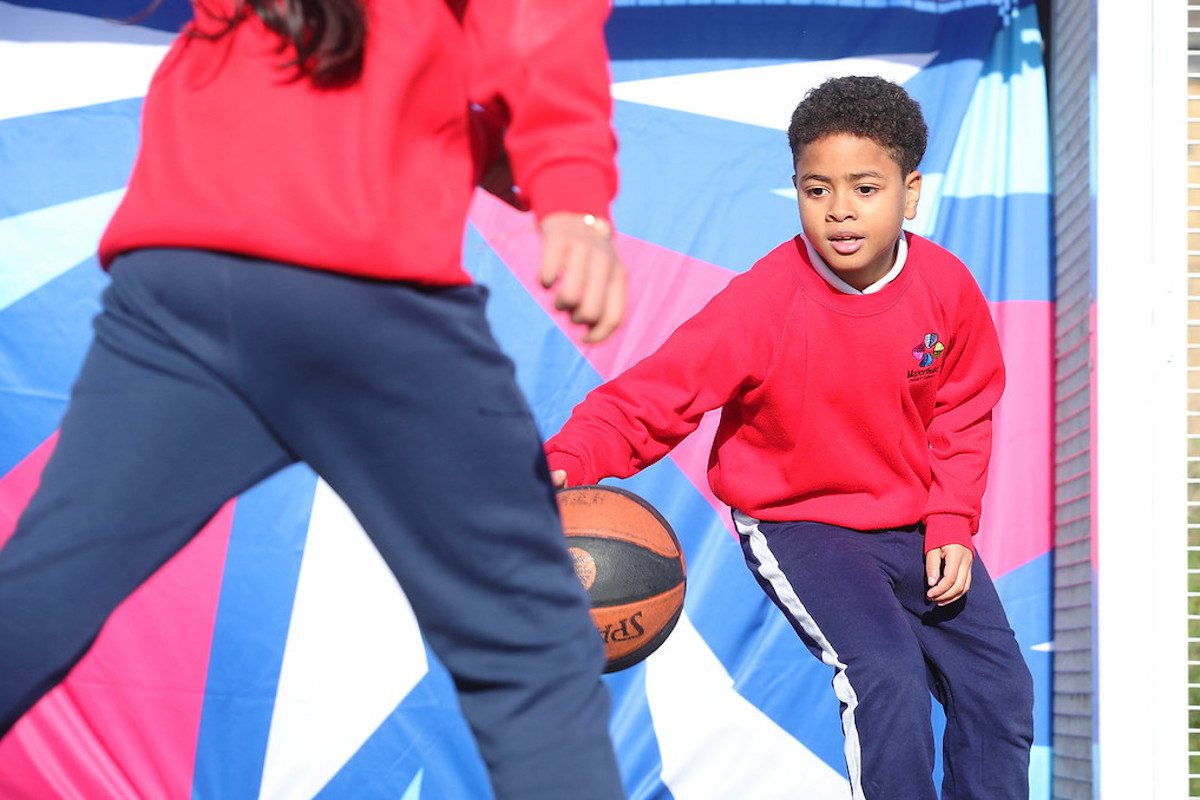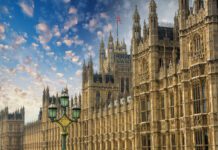
- More than a quarter (28%) of children’s sports grounds analysed in five UK cities have dangerous air pollution
- 92% of sports grounds analysed in London breach World Health Organization limits
- 2022 Commonwealth Games in Birmingham venue heavily polluted as well as University of Salford ground in Greater Manchester
- Medical professionals warn for the first time that air pollution is likely to impact on children’s “potential to train” for sport
- ‘Breathe GB’ advertising campaign launched to highlight air pollution’s effect on athletes of the future
Government action to cut air pollution would have immediate benefits for children’s lung function across the UK and is likely to significantly improve the nation’s sporting performance, according to a new report.
The study, entitled Breathe GB, analysed air pollution levels at training grounds across the UK, as well as interviewing respiratory consultants and leading PE experts. It suggests that children living and playing in deprived areas are particularly vulnerable to air pollution, which can cause asthma and limit their ability to train.
The report used advanced modelling to compare data at training grounds and sports fields across the UK. Of the 94 sites assessed, 26 broke World Health Organisation limits for PM2.5 or NO2, representing 28% while more than half (52) came close to, or hit, the threshold for PM2.5.
In the report, Professor Jonathan Grigg of Queen Mary University explains “there is very strong evidence that exposure to air pollution stunts children’s lung function. Children with clinically low lung function will have reduced exercise capacity.”
Particulate pollution (known as PM2.5) is considered particularly dangerous as the microscopic particles enter via the lungs and get absorbed into the bloodstream and is associated with a wide range of health conditions including lung cancer, asthma, heart attacks, strokes, diabetes and depression.
Lucy Harbor, a parent from London whose child was hospitalised with pneumonia linked to air pollution, said: “ I’m incredibly worried about the amount of pollution that they are breathing in and what impact that is having on their sporting potential and also their long term health. Queen Mary’s University monitored the pollution my son was exposed to in the school playground last year, and found ‘very worrying’ levels of pollution while he was playing after school football club.”
The sites were selected from five major UK cities: London, Birmingham, Greater Manchester, Nottingham and Sheffield. These included sports grounds where major stars trained including David Beckham, Sol Campbell, Christine Ohuruogu, Mo Farah, Raheem Sterling, Frank Lampard and Linford Christie.
Dr Suzanne Bartington, Public Health Doctor and Clinical Research Fellow, University of Birmingham, said:
“It cannot be right that young children are having their future health and sporting talented limited by the air they breathe. We need both local and national government to work together to improve air quality across Birmingham.”
Anna Page, a parent from Manchester whose daughter has had a number of emergency hospital admissions due to breathing difficulties said: “As a parent I’m concerned about the impact of air pollution on my children’s lungs. My four year old daughter has asthma and I know that this will impact on her ability to play sport as she gets older. I also know that the high levels of air pollution where we live will inhibit her lung function further and this is extremely worrying.”
Dr David McKelvey, a GP based in Salford, said:
“This is very worrying that young people who are trying to do the right thing by getting involved in sports are potentially damaging their health because of the toxic air in our city. We need government to provide the resources and funding to tackle pollution and ensure ensure all young people can gain the full health benefits of exercise and that we can unleash the potential of the sports stars of the future.”
Dr Ian Mudway, Senior Lecturer in Respiratory Toxicology, King’s College London argues those with asthma are particularly vulnerable, said: “A child growing up with asthma in a polluted city will have worse symptoms that will limit their potential to train… which is likely to have an impact on their optimal level of performance.”
Those working with children at the beginning of their relationship with sport are also equally concerned. Sue Wilkinson, CEO Sue Wilkinson, CEO of the Association for Physical Education added: “We see a lot of children who have asthma living in polluted areas and it prevents them from taking part in active travel… which is not conducive to healthy physical education.”
Sinead Devlin, Head of PE at Manorfield Primary School in Tower Hamlets, whose pupils are featured in the BREATHE GB campaign and who play sport at Mile End Stadium which breaches pollution limits, said:
“As a PE teacher, I know that the first aid bag is getting bigger – I have more children than ever who’ve been recommended asthma pumps by their GP. So many of them struggle with basic fitness levels, with breathlessness – it’s no longer just children with asthma that struggle. Our job as teachers is to help children be the best they can be, and if air pollution is impacting that, then that’s incredibly alarming.”
The report – from campaigning group The Air Team – calls for robust legislation to cut air pollution across the country and ‘take British sport to new heights’. The group is calling for the introduction of clean air zones in all of the UK’s major cities and for the government to adopt WHO-recommended levels of NO₂ and PM2.5 as a minimum by 2030.
Of the sports grounds that broke WHO limits, the majority were in London, except for Perry Hall Park in Birmingham and the University of Salford Sports Centre in Salford, Greater Manchester. Perry Hall Park in Birmingham will be redeveloped by the council along with the main athletics stadium for the 2022 Commonwealth Games.
Anella Wickenden from The Air Team added: “Lots of us worry about the impacts of air pollution on our children’s lungs. But we might not think about how this affects their ability to play sport and stay fit. There are huge benefits to cleaning up our air, from your local school day to Team GB’s performance at the Olympics.
“We want the government and city mayors to recognise these benefits and take immediate action to clean up our air. If you care about British sport, you need to care about air pollution.”
You can download a copy of the report from www.breathegb.org.








